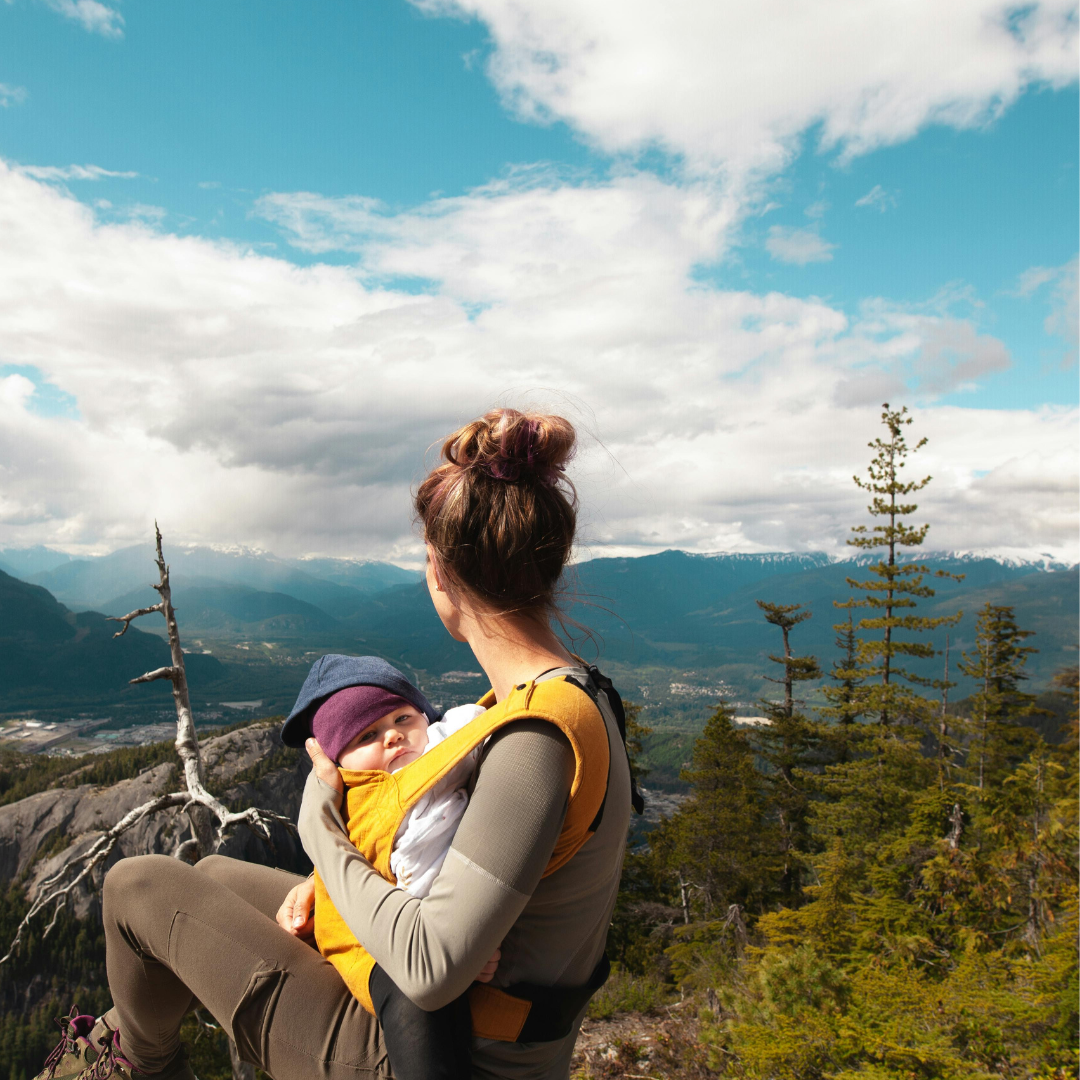
Menstrual cycles can be irregular at the best of times, let alone in a period (pun intended!) of your life when you might perhaps be experiencing some of the biggest changes yet…entering motherhood.
We hope this blog piece provides a little guidance, as your body gets back into rhythm postpartum, and a few of the “why” and “what nows?” you might have, with a little help from the experts.
Postpartum bleeding (and why that’s different to a period)
Most women, regardless of whether you’re breast or bottle feeding, will have to wait a while for your period to come back. If it’s the latter, it could be as little as 4-6 weeks. Just when you've been used to a period-free life for a whole nine months, your bleed decides to make a comeback. Given that just 17% of adult women feel they have enough knowledge about menstrual wellbeing, dealing with postpartum periods is something we feel most people could do with a little guidance on.
As the placenta detaches from the body, open blood vessels bleed into the uterus causing a heavy flow. After delivery, the uterus contracts, shutting down these blood vessels and the bleeding slows. This is known as lochia and usually starts as a bright red but gets progressively lighter, both in colour and amount over the course of a few weeks.
In fact, your body will be prepared for a certain percentage of blood loss, given that your total blood volume increases by as much as 50% during pregnancy. Keep up those iron supplements! For more information, The Society for Maternal Foetal Medicine breaks down what's normal and what to look out for that could be signs of hemorrhage.
After your baby arrives, the midwives will help your uterine contract by applying firm pressure to your tummy and a synthetic form of the hormone Oxytocin (Pitocin) may be given to help deliver the placenta. If you choose to breastfeed, this will also help, as the body releases oxytocin naturally when the baby suckles.
Will I bleed postpartum if I have had a C-Section?
Yes, your body will expel lochia (or bleeding post birth) whether you’ve given birth vaginally or not. It is a mixture of uterine tissue, blood, and mucus and is NOT a period.
Many mums find a postpartum belly band helpful for supporting their core and recovery, especially if they had a C-section.
Your first period after giving birth: what to expect.
A few weeks to a few months into life post-birth, you will get your period back. But, as we mentioned, this is dependent on whether you choose to breast or bottle-feed. If it’s the former, you may not end up getting your period back for a while. This is normal and has a fancy scientific name of lactational amenorrhea. It doesn’t matter what you chose…after all, we think fed is best! Bottle feeding your baby will mean you could see your period come back just 5-6 weeks after giving birth. On the other hand, the longer you breastfeed will have a delay effect as this process produces prolactin, a hormone that suppresses ovulation.
But if you were used to a regular flow, they might be a little heavier or lighter, punctual or totally sporadic. We say… you gotta go with the flow.
Period pants are great for this time and will keep you covered whilst you juggle the other 101 things on your to-do list. You can rely on the Susie knicker right now. She’s comfy, medium-absorbency and can hold up to three tampons worth of blood, giving you maximum peace of mind and maximum protection for any time your period turns up unexpectedly. Find her here - The Susie Knicker. If your flow tips over to the heavier side of the spectrum then you can count on The Polly Knicker.
Is there anything I can do at home that will help me navigate postpartum periods?
Exercise
We get it, the last thing you may fancy when you’ve delivered a whole new human into the world is to pick up your trainers and head out for a run. And that’s not something we would recommend! But investing in yourself in the form of gentle everyday movement, whatever that looks like for you can be an excellent form of self care and when you’re looking after yourself, your body produces all the happier hormones like endorphins and serotonin which can only help to settle your body into its natural rhythm. You can find gentle yoga flows over on YouTube. We love watching Yoga with Adrienne.
Diet
The NHS website should be on your hitlist if you’re looking for how to optimise your diet for wellbeing postpartum. In a nutshell, you want to try and avoid foods that will quickly spike your glycaemic index and of course, up your green veggie intake.
Stress
Like navigating postpartum periods, It’s no secret that having a baby can be one of the most stressful times in your life. We believe that you can’t pour from an empty cup so here’s a few suggestions on what we think may help look out for number one (AKA, you!) and keep stress levels to a minimum.
- Don’t feel guilty for asking for help - becoming a mum is a whole different ball game. If neighbour Sue has offered to cook for the second night in a row, let her. You can repay the favour later.
- Rest when you can but don’t be so hard on yourself… self - compassion for your lack of patience or ability to get dressed sometimes is just part of those hazy new-born days.
- Try and eat as healthily as you can, this might help keep your hormones in check instead of spiking blood sugar levels.
- Try meditation, there’s plenty of great, free(!) videos you can watch here.
We’ve spoken about what to expect and what’s normal, making the management of period irregularity a little less daunting.
Having the right protection (we say period pants!) at hand can do wonders for the peace of mind, but sometimes, you just need to speak to your doctor. They’re the real experts in the science-y stuff and can provide everything you need to know about your particular cycle.
So to sum up, big life changes and big bodily changes. You’ve been through a lot. Postpartum bleeding is something that you can’t escape from, but we hope this has eased your mind on a few things, given some suggestions of what might help you navigate or perhaps sign-posted you to where you can access your next steps.
